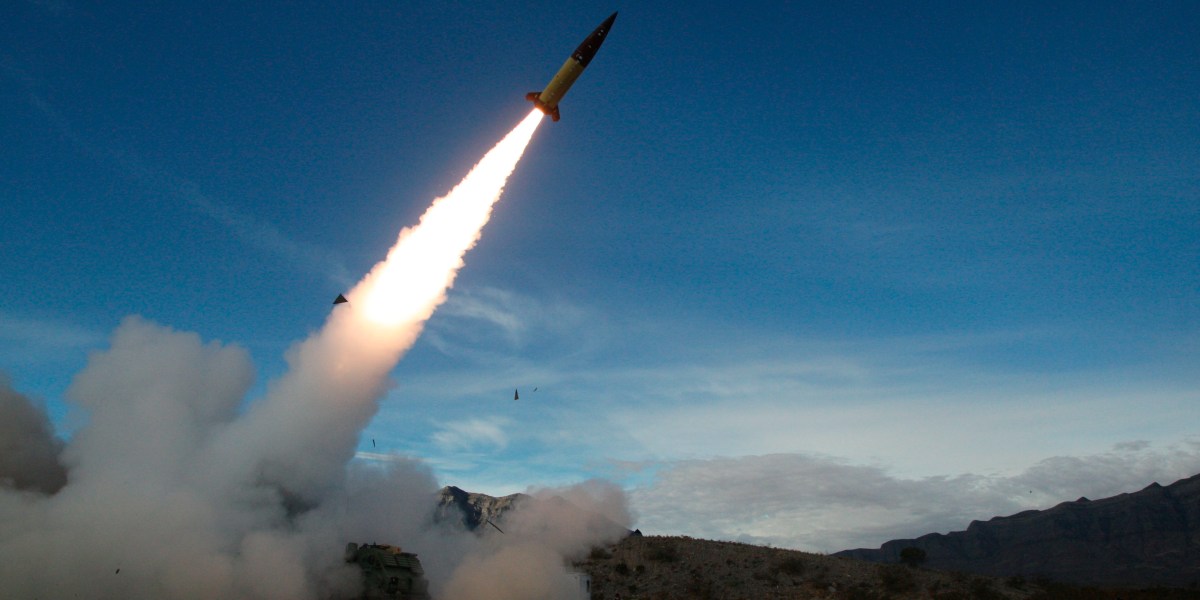Should You Add Defense Stocks To Your Portfolio In 2023?

Key takeaways
- War in Ukraine and U.S.-China relationship breakdown has put a new spotlight on defense stocks
- Defense spending in the U.S. is proposed to rise to $842 billion in light of the issues
- Lockheed Martin, Boeing and Raytheon are some examples of high-profile defense companies to potentially invest in
War: an unsavory topic, but one of the biggest – especially in the US, where annual defense spending reaches astronomical levels. It’s been an unfortunate theme since Russia launched its offensive against Ukraine last year, prompting many investors to turn to the defense industry for investment gains.
If you’re looking for steadier returns and relatively low-risk businesses, the defense industry might be a good option for your portfolio. We’ve got the lowdown on what’s currently driving stock returns and how you can get your portfolio involved.
Some industries feel more taboo to invest in than others. That’s why Q.ai created the Guilty Pleasures Kit, which uses a deep learning AI model to invest your funds in sectors like gambling, alcohol and tobacco so you can build wealth from the vices, guilt-free.
The AI scans through reams of data to find the best-performing stocks and ETFs each week, then dynamically adjusts the holdings as needed to help maximize returns and keep you one step ahead.
MORE FOR YOU
Download Q.ai today for access to AI-powered investment strategies.
What are defense stocks?
Nobody wants to see war happen, but when it does, the defense industry is up to the task. At its core the defense industry produces the vehicles and airplanes, weapons and defense systems needed to wage a war. But it also comprises otherwise mundane companies like data center and IT network businesses, warehouses to manage inventory and administrative functions.
Defense companies have one main customer: the U.S. government. With the largest military budget of any country in the world, it’s the reason why defense stocks are seen as pretty safe in comparison to riskier stocks, like tech, and are often included in recession-proof stock lists.
What’s the latest with the defense industry?
The two biggest geopolitical issues are Russia’s offensive against Ukraine and escalating tensions between China and the West. Neither are insubstantial conflicts and they could potentially reshape the face of the planet. Which is why defensive stocks are performing well at the moment.
Russia first attacked Ukraine in February 2022; sadly, the war looks set to drag on for years to come. As a result defense spending has risen by many governments, as many have sent domestic defense machinery to Ukraine. In March, the U.S. Department of Defense proposed a 2024 budget of $842 billion, up $26 billion from the year before.
As for the China-U.S. situation, a Chinese spy balloon and other ‘UFOs’ flying in U.S. airspace earlier this year have soured the relationship and prompted the world to consider if we’re entering a Cold War-style era where defensive companies will be front and center, potentially for some time.
Another factor that has plagued the defensive sector has been supply chain issues. As countries look to replenish their defense supplies, defense companies have been no stranger to high inflation pushing up materials prices, supply chain snags and labor shortages like many other industries have faced. These pressures have eased in 2023, but defense businesses still don’t have much inventory at the moment and the situation definitely isn’t over for some companies.
How to invest in defense stocks
Defense stocks did well in 2022, enjoying a big rally in October and far outpacing the wider stock market: the MSCI Aerospace & Defense index has seen 18.66% growth in a 12-month period. They could be a good addition to investor portfolios with the current climate.
As always, there are many ways to get direct or indirect exposure to defense stocks. If you want to invest in individual companies, there are a few stand-out stocks that are synonymous with U.S. defense.
Lockheed Martin
The biggest defense company in the world, Lockheed Martin produces the top fighter jets like the F-35A aircrafts, which has a $7.8 billion contract with the U.S. government to produce missiles and electronics.
It’s a pretty stable company, though the stock has fallen this year by 5.51%. This year, it might be a bargain price depending on whether Lockheed Martin’s recently announced restructuring efforts for its space division and rumored buyout of Boeing from the United Launch Alliance.
Boeing
Boeing is known for its gigantic commercial airline business, but a fair chunk of the company is dedicated to defense thanks to its aircraft and helicopter production for the Pentagon.
Boeing’s share price has seen a huge 58% increase in the last year, helped by a record order of planes from Ryanair and increased deliveries. That carries more weight than you think: even when Boeing missed Q1 estimates from Wall Street, the stock still rose because it wasn’t as bad as expected.
Raytheon
Aerospace parts supplier Raytheon Technologies has had a fairly mixed outlook this year. It had a good Q1 earnings report, beating sales and EPS predictions and reporting a $180 billion backlog, but the stock is down 7.65% this month as its profit has declined in its defense production.
The company is at a crossroads: if it can solve its supply chain issues and increase its inventory, its profitability should increase. Investors might look to get ahead now in case the stock price rises.
ETFs
Another option for those looking to diversify the defense companies they’re investing in is exchange-traded funds (ETFs). The iShares U.S. Aerospace & Defense ETF has grown marginally in 2023 with a 1.67% lift, while the SPDR S&P Aerospace & Defense ETF has seen a decent 6.13% increase since the start of the year.
All of the above are good starting points for would-be defense sector investors, and a diversified mix of stocks and ETFs is always recommended to make sure your portfolio is overly reliant on one company.
The bottom line
War and worsening relations between the West and China have been an unexpected boon for the defense industry, which otherwise was intended to plod along steadily. With different stocks and ETFs to invest in, a diversified approach is best if you’re looking to catch the upside.
We get it: defense companies won’t be everyone’s cup of tea. But for those worried about a potential recession and looking to switch up their investing strategy, defense stocks have shown some promising returns as geopolitical tensions show no sign of ending.
AI can help take your investing to new heights, especially with recession fears persisting. Q.ai’s Recession Resistance Kit is a one-stop shop using AI technology to help you build wealth without hours of research needed.
The AI algorithm sifts through the data on which recession-proof stocks are set to perform well for the week, then readjusts your funds in the holdings as needed to help make sure you’re taking advantage of market shifts.
Download Q.ai today for access to AI-powered investment strategies.







